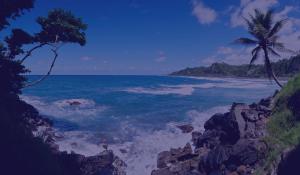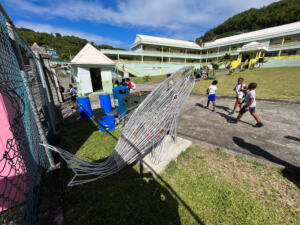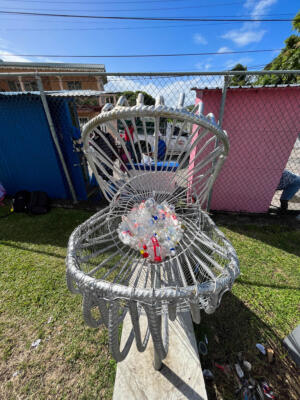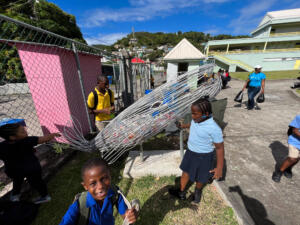
Grants
Phil D. Whale
£24,500 awarded

A project generously enabled by Depeche Mode and Hublot’s Memento Mori Tour charity partnership with the Conservation Collective to tackle plastic pollution. Lead by the local charity and our grantee, Action Bequia.
Pollution, especially from plastic drink containers, poses a serious issue on small islands like Bequia. If ignored, streets and oceans become filled with plastic waste, turning into breeding grounds for mosquitoes and leading to health issues like outbreaks of dengue, zika, and chikungunya. Additionally, these items often end up in drains, causing blockages and significant pollution runoff into the surrounding ocean water, adversely impacting marine animals and plants. Micro plastics are then found in fish, whales, sea turtles and seabirds.

Phil D. Whale, a project lead by local Bequia charity Action Bequia, is a plastics waste management project, where 16 steel structures shaped as whales are constructed by local sculptors to be used as collection sites throughout the island, focusing on solely on plastic bottles. This project aims to boost collection rates by establishing high-profile collection points and serving as a focal point for further educating the community, with a particular emphasis on youth, about the importance of recycling.
Bi-weekly collections will be done throughout the project period, and the amounts of plastics collected will be recorded. From this there will be prize givings to the best performing collection sites and community members. There will also be extensive educational campaigns around ‘Phil’ of Phil D. Whale as it relates to how to better protect our marine animals and personal health when it comes to proper waste management and recycling.

The outcome of this project to have these high profile collection sites become the norm for all those who live in and visit Bequia. The design, educational campaigns and prize givings will all be aimed at attracting attention, while spreading the environmental message regarding proper waste management and how it affects the marine species in particular. Over 5000 people live on Bequia, many of whom are fisherfolk and rely on the sea for their livelihoods. On top of this Bequia is visited by over 65,000 people a year, most of these visitors will be passing through sites where these sculptures will be installed, providing both an opportunity to dispose of their plastic waste properly as well as educational signage depicting the project and its goals, to protect the local environment from plastic pollution.

